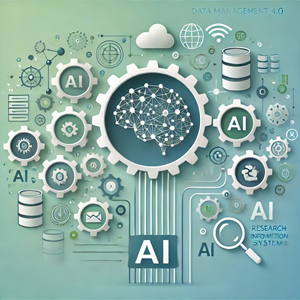Dieser Blogpost dokumentiert zentrale Aussagen zu Open-Science-Themen in den Parteiprogrammen zur Bundestagswahl 2025 am 23. Februar 2025 von AFD, BSW, CDU/CSU, SPD, FDP, Grünen und Linke. AFD Im Wahlprogramm der AFD (PDF) wird Open Science nicht spezifisch adressiert.
Messaggi di Rogue Scholar
🔗Maintaining Community Trust and Safety The rOpenSci community is supported by our Code of Conductwith a clear description of unacceptable behaviors,instructions on how to make a report,and information on how reports are handled.We, the Code of Conduct Committee,are responsible for receiving, investigating, deciding,enforcing and reporting on all reports of potential violations of our Code.We are committed to transparency with our community
Note This is a follow-up blog post to the Dual licensing R packages with code and data post published in September 2024. It contains learnings from submitting epiparameter to CRAN with a dual license. Overview of previous blog post on R package licensing We previously published a post on the Epiverse-TRACE blog discussing the importance of licensing code and data for open source.
One-and-a-half years ago I started migration my blog from blogger.com to a Markdown and Git-based blog. It has been a fascinating journey that I do not regret. I love being back in control and not reliant on features of some content management system. I learned so much along the way, including Jekyll and Liquid to start with, but also Fontawesome (for better or worse)m and Goatcounter for GDPR-compatible and privacy-first impact tracking.
Inspired by the silly inquiries of Any Austin and the concept of relational playworld by Melos Han-Tani I figured I’m going to spend some more time in Alba, after I finished it for the second time.
Here’s the books I read in 2024. If I were Dudley Dursley, I’d be very upset that I read one fewer new book than in 2023. But then, I’d remember that I re-read a lot of Cosmere in 2024 to prepare for Wind and Truth , which was great.
We invited our community to nominate potential keynote speakers for BOSC, and we were delighted with the many excellent suggestions received. In the next stage of this process, we’re providing you with an opportunity to express any concerns regarding the suitability of any nominated individuals as BOSC Keynote Speakers. Our invited speaker selection process and criteria include examples of potential reasons for exclusion.
I was working on making data about scholarly conferences more FAIR and a big question crossed my mind: what are all the conference venues? This post is about some queries I wrote for Wikidata, data issues I found, and a few drive-by curations that I did while looking for an answer, and my ideas for the future.

Managing research data has become a monumental task. With growing volumes of diverse and complex information, traditional methods just aren’t cutting it anymore. Enter Data Management 4.0 , a forward-thinking approach that harnesses the power of Artificial Intelligence (AI) to transform how research institutions handle their information.

They say the system is perfect, but perfection always comes at a cost. I should know—I helped build it. In the 22nd century, health isn’t just a right, a privilege, or even a commodity. It’s currency. Every breath, every heartbeat, every productive hour has a price tag.
A few quick notes on thinking theory through metaphors.